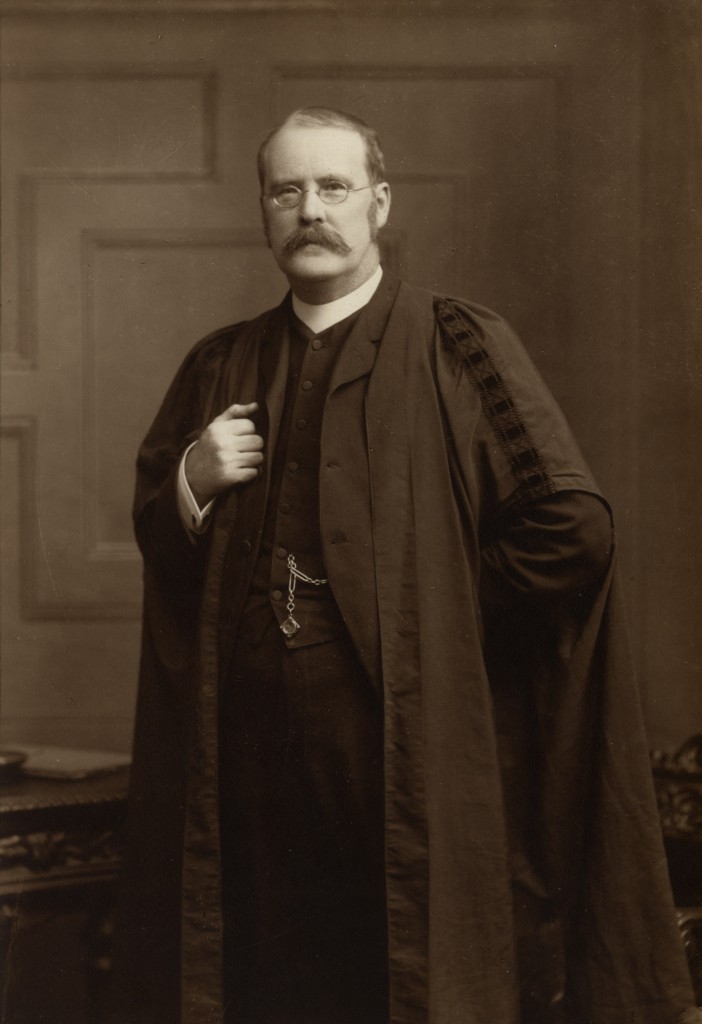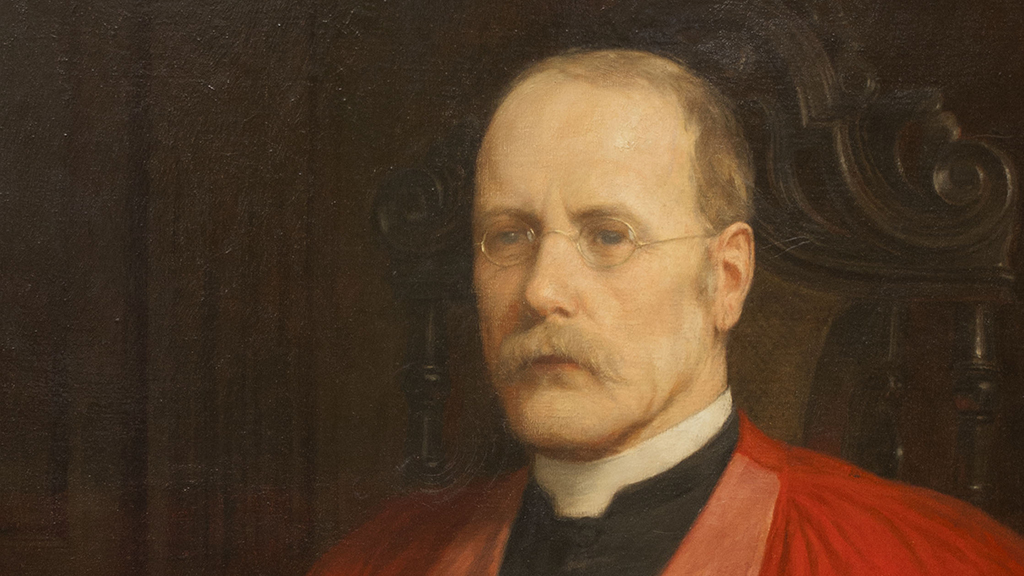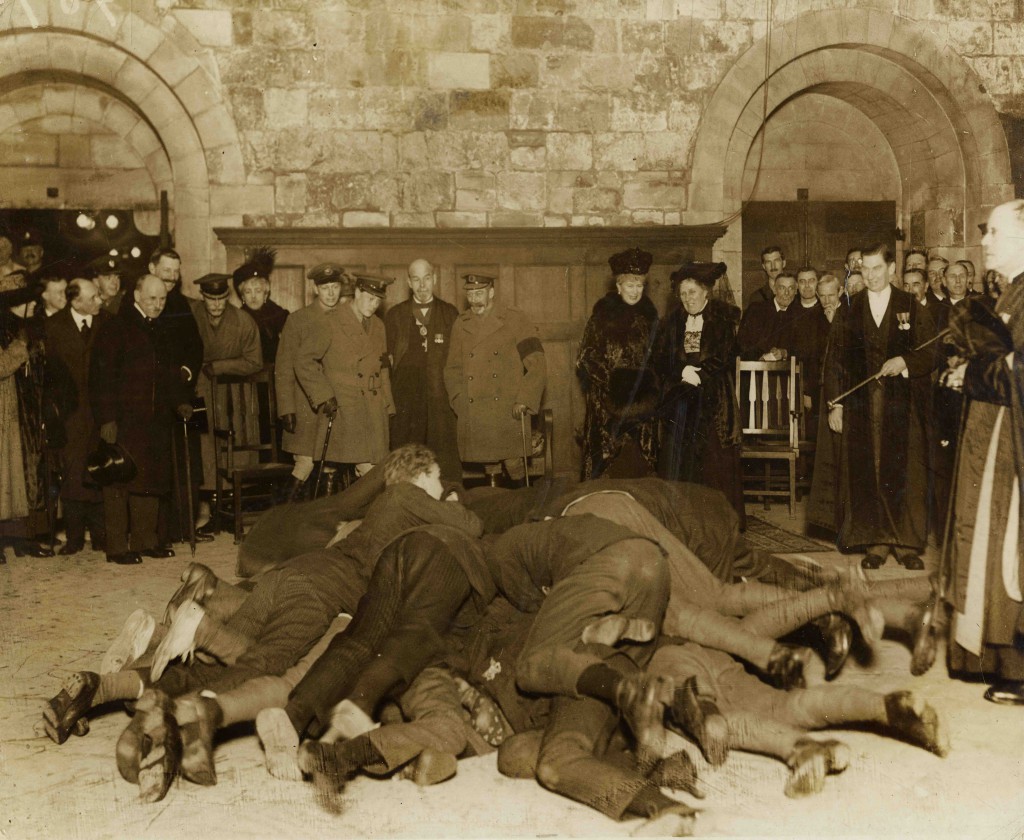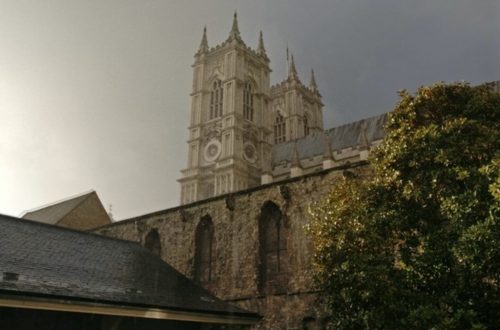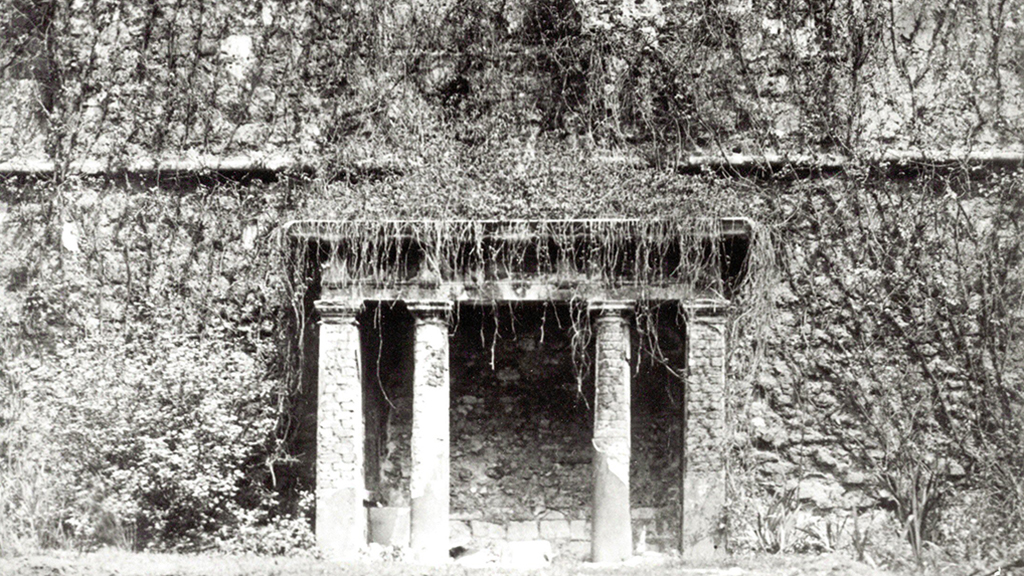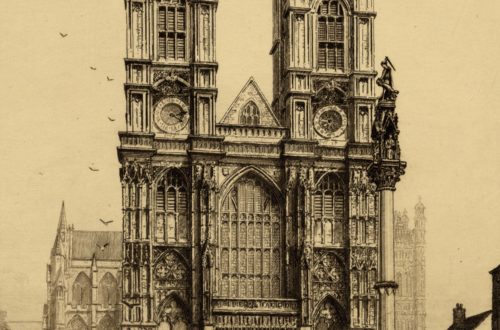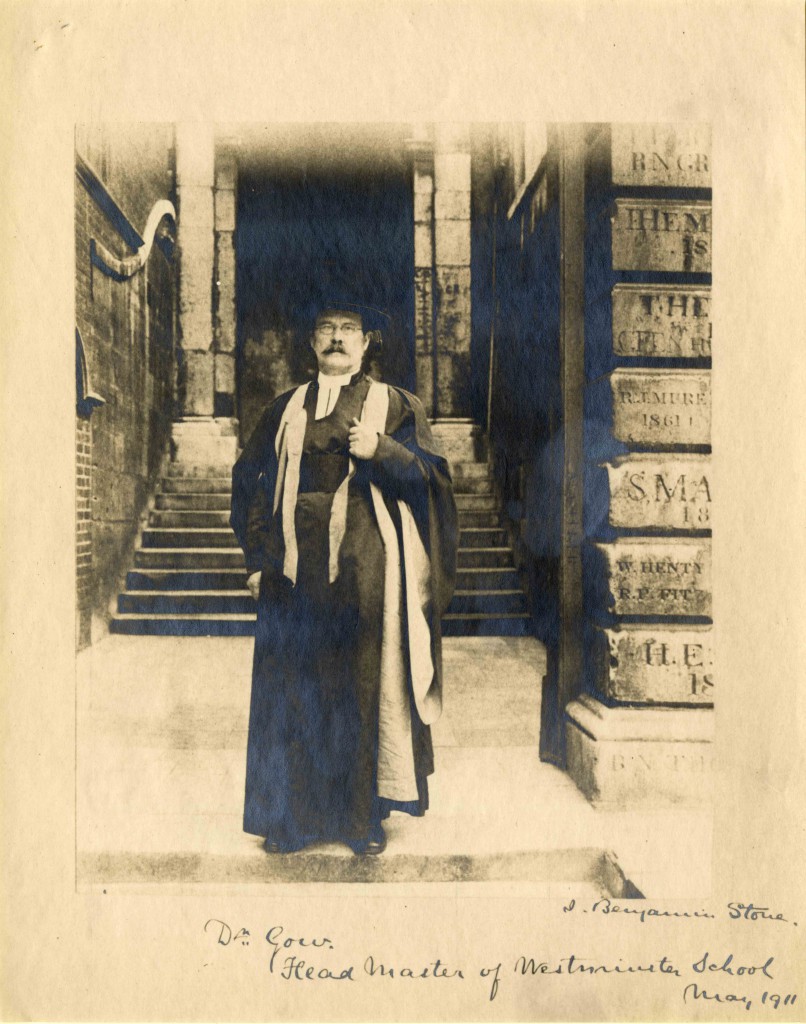 Dr James Gow, Head Master from 1901-1919, saw Westminster through a hectic time which included the start of the twentieth century, the First World War and several royal visits. Along with several of his predecessors, he is best known for continuing to build up the reputation of a school that had suffered badly sixty years before. Gow was always keen to advertise the school positively to the outside world, and, eternally busy and energetic, accomplished much in this respect and others, despite his struggle with blindness (for which he is probably most famous now).
Dr James Gow, Head Master from 1901-1919, saw Westminster through a hectic time which included the start of the twentieth century, the First World War and several royal visits. Along with several of his predecessors, he is best known for continuing to build up the reputation of a school that had suffered badly sixty years before. Gow was always keen to advertise the school positively to the outside world, and, eternally busy and energetic, accomplished much in this respect and others, despite his struggle with blindness (for which he is probably most famous now).
Gow came to the position of Head Master at the age of forty-seven, and by all accounts was never known for being an emotional person. He believed in home influence and often tried to encourage boarders to go home at weekends, and understood well how the academic side of the school operated. In an interesting step against the spirit of the age, he acknowledged that many clever pupils did not excel at classics and encouraged all subjects, particularly German (which he taught). This was unusual at a time when most public schools, Westminster included, focused more on classics than they do now. The sport of water was revived again in 1910, after it had been abandoned two decades earlier.
Gow ran the school effectively and was generally very popular (this may be reflected in the gift of a motor car which he received before leaving the school). New science buildings on College Street were opened and the College Sanatorium was installed during his tenure, and in a nutshell, he managed to make Westminster more academic than it had ever been before. Receiving King George V, Queen Mary, the Prince of Wales (later King Edward VIII) and Duke of York (later King George VI) for the Greaze in 1919, and Princesses Louise and Beatrice to the 1903 and 1911 Latin Plays also reminded the school of its royal connections and increased its pride in itself. Dr Gow also wrote notes on the coronation of King Edward VII and his wife Queen Alexandra in 1902.
Gow was not keen on elaborate ceremonies, and he was most comfortable with direct face-to-face interaction and people being straightforward. This was reflected in what could well have been known as ‘Gowisms’, so often did he repeat them: ‘The man’s a fool’, ‘I don’t see why you shouldn’t’, ‘Thank you for nothing’ and many other similar phrases. But some were cruel to him and mocked him for his peculiar manner of teaching. Entries in the record books kept yearly by each Captain of the King’s/Queen’s Scholars, for example, were not kind to him.
Gow was always struggling against blindness. His eyes troubled him during middle age, and after he left Westminster his sight deteriorated greatly and his last years were spent almost entirely blind. Gow passed away from the after-effects of a severe operation to do with his sight, but had done his best to continue working generally and spending his leisure time painting, which was his chief hobby for most of his life. Another hardship which Gow encountered was the loss of his eldest son in the First World War.
Dr James Gow was truly then a remarkable character, and one who was achieved much and who was well remembered and largely appreciated both in life and in death. He was definitely someone who got caught up in Westminster and was devoted to the place. And he was always fighting to the very end, against his endless work, his critics and most of all, his blindness.
